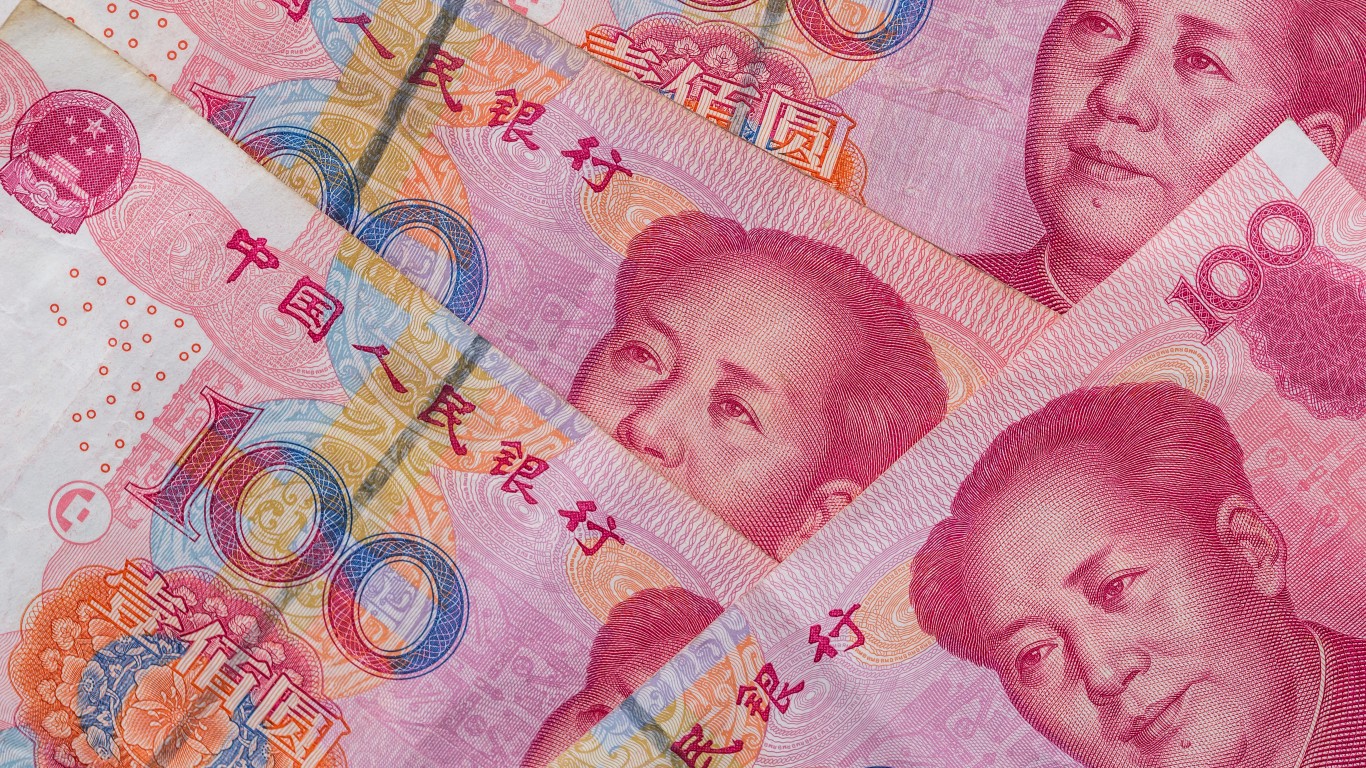Economy
Over 500 Argentine Companies Turn to the Yuan for Imports Amid Dollar Shortage

Published:

Due to severe US dollar scarcity and inflation in Argentina, more than five hundred companies operating in the country have been compelled to request the use of Chinese yuan (CNY) to pay for their imports. As a result, the yuan’s share of transactions in Argentina’s currency market surged to a record high of 28% in June, up from 5% in May.
The rapidly-declining US dollar supply in Argentina is forcing the country’s largest companies to embrace the yuan for trade settlements, a currency that has historically played a minor role in international commerce.
According to a Bloomberg report, over 500 companies in Argentina have filed requests to use CNY to pay for imports of key parts. These include companies from various sectors, such as auto parts and textile manufacturers, oil and mining firms, electronics makers, and more.
The Argentine government has approved import payments in yuan equivalent to $2.9 billion. During the first 10 days of June, yuan transactions in the country’s currency market skyrocketed to $285 million, doubling the figure reported in all of May.
In addition, the percentage of yuan transactions in Argentina’s forex market recently rose to a new daily high of 28%, up from 5% last month, data from the Mercado Abierto Electrónico exchange showed. From a broader perspective, CNY’s share in global SWIFT transactions rose to 2.54% in May, marking its highest level since January 2022.
One of the companies that requested to use the yuan instead of the dollar is Whirpool, a US-based home appliance manufacturer. The company invested $52 million to build a factory outside Buenos Aires, but the ongoing dollar squeeze makes it difficult to import parts required for the plant’s construction.
China has long sought to advance the global usage of the Chinese yuan for international trade but has faced challenges in achieving substantial progress primarily due to the dominant position of the US dollar in the global financial system. However, the present dollar shortage in Argentina could present a unique opportunity for the world’s second-biggest economy to expand its influence in that region.
“For Argentina, its currency ties to China represents an emergency, but for China, it’s a point of leverage to take advantage of a geopolitical opportunity.”
– said Marcelo Elizondo, a trade economist in Buenos Aires
Over the years, China’s central bank has reached currency swap agreements with around 40 global nations to extend its homegrown network of cross-bordar yuan payments system, called ‘CIPS.’ Meanwhile, Argentina turning to yuan comes as the government talks with the International Monetary Fund (IMF) to secure additional up-front cash from the country’s $44 billion aid program. The South American nation isn’t adhering to the core IMF targets after a historical drought eradicating roughly $20 billion worth of crop exports, increasing the dollar shortage.
This article originally appeared on The Tokenist
Retirement can be daunting, but it doesn’t need to be.
Imagine having an expert in your corner to help you with your financial goals. Someone to help you determine if you’re ahead, behind, or right on track. With SmartAsset, that’s not just a dream—it’s reality. This free tool connects you with pre-screened financial advisors who work in your best interests. It’s quick, it’s easy, so take the leap today and start planning smarter!
Don’t waste another minute; get started right here and help your retirement dreams become a retirement reality.
Thank you for reading! Have some feedback for us?
Contact the 24/7 Wall St. editorial team.